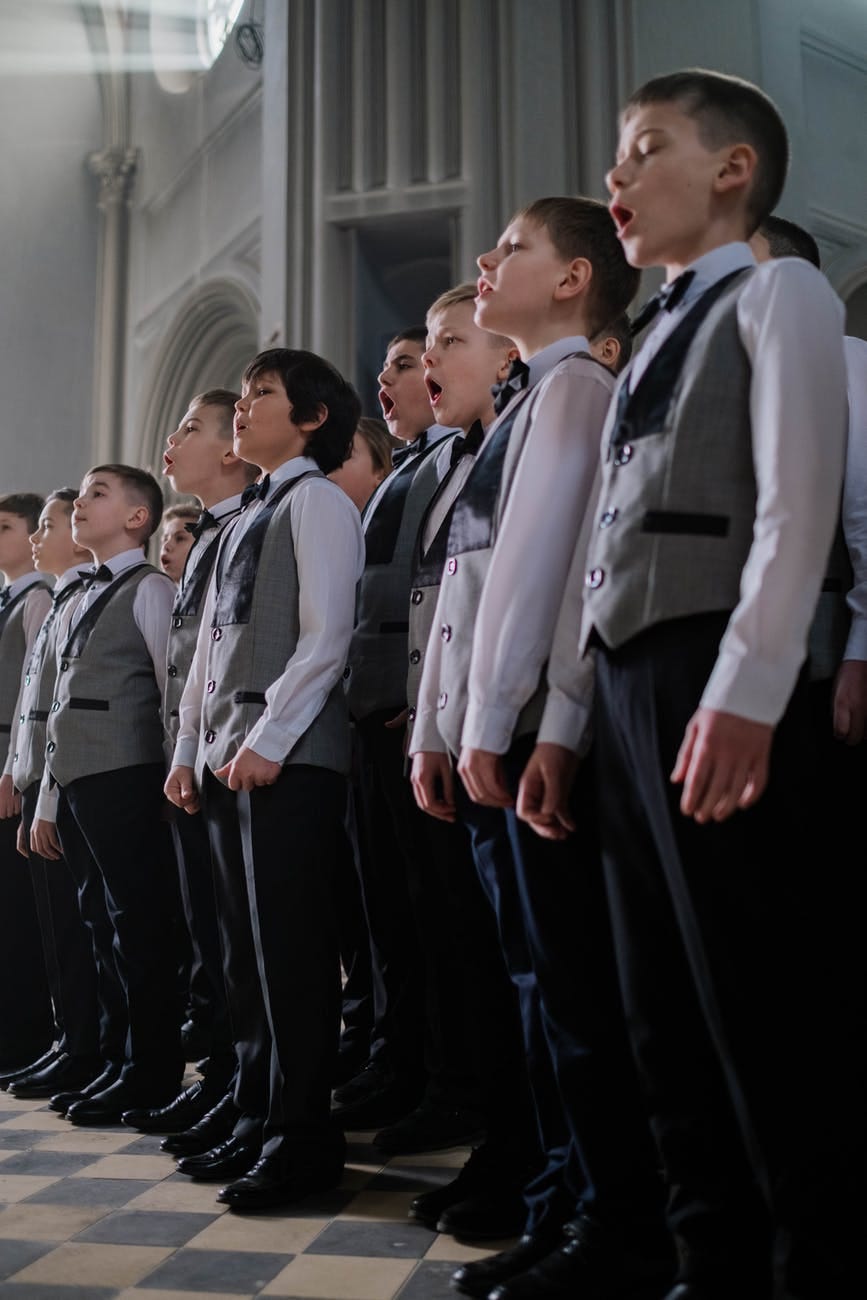The secret history of Yam Suf and Zac Efron
The splitting of the sea, the parsing of the Disney Channel
Hello and welcome back to Torah Goes Hollywood, where the Torah is doing in 2022 what Jean Harlow did in 1922, though with nobler intentions — and, hopefully, better results. We're happy to have you here as a subscriber. And if you're not one, you can still redeem yourself; just sign up here.
You can also read past posts here. Oh, and if you are a subscriber, please tell a friend. Torah is better with a friend. And unlike the actual Hollywood, here you can have real friends.
To the weekly matters at hand.
—
Ask any card-carrying Bible student about the fate of the Jews as they were fleeing Egypt and the answer will come back quick.
The assumption — honed by years of early-childhood Jewish education and the periodic trauma of Cecil B. DeMille — is that, pursued by a massive Egyptian army, the Israelites were pinned up against Yam Suf, the Red Sea, with no way out. Their predicament is almost lyrical. Clowns to the left of me, a watery death to my right, stuck in the middle wondering why Hashem brought me to this place.
It turns out, though, that the water may not have been much of a danger. First off there’s the geography. For all the debate about what Yam Suf was, it pretty clearly was not the Red Sea, which was well south of where the fleeing Israelites would have been. More likely it was one of the marshes or small lakes in northern Egypt. And marshes and small lakes, they can be circumvented.
Maybe just as important is the text itself. Despite all our assumptions that, like a latter-day Tiger Woods ball, the Israelites had nowhere to go but into the drink, the text of this weekend’s B’Shalach portion doesn’t seem too concerned with it.
No, the Israelites’ likely demise, the verses emphasize, will come in the hot sweltering desert. Per a gloating Pharaoh in Exodus 14:3: “Nevuchim heim ba'aretz, sagar aleihem hamidbar.” “They got confused in the land, and now the desert has closed in on them.” Per the Jews, eight verses later, inclined to agree: “Ha’Mibli ein k’varim b’mitzraim, l’kachatanu lamut bamidbar?” “Are there not graves in Egypt, you brought us to die in the desert?” Not a lot of water here.
In fact, it’s so clear that the sea is not among the Israelites’ big concerns that Medieval commentators like Ibn Ezra, the 12th-centry Spanish scholar, come right out and say it. “We know that the Red Sea is not situated between Egypt and the Land of Israel,” he writes. “There was no reason for them to enter the sea,” he concludes.
Which raises the question of why they did. Or, more specifically, why God, intent on saving them, chooses such an unusual vehicle. He tells a desperate Moses to raise his staff and turn the water nearby into dry land so the Israelites can walk over it, which of course is exactly what happens. But why this option? If miracles were on the table, God could have saved the Israelites from an encroaching army in any number of ways, and done so with equal statement-making symbolism — “moftim,” as they’re called.
He could have, say, derailed the Egyptian army with a blast-from-the-sky disaster, capping the Plagues with one more coup de grace. Or he could have sped up the Israelites’ path so that they simply outran the Egyptians. You need not be International Olympics Committee chairman Thomas Bach to view masses of former slaves suddenly turning into a nation of Usain Bolts as a pretty cool spectacle.
Yet God unexpectedly chose to have the Israelites enter the water and have that be the site of their final triumphant confrontation with their masters, who will drown while they stand on dry land.
Much commentary has been shed about the import of the sea-split that can be deployed to answer this question. I’ve always been partial to the suggestion of the Hebrew University professor Ilana Pardes, who in her book “The Biography of Ancient Israel” compares the Israelites passing through water to a baby passing through a birth canal — a poetic embodiment of the idea that a nation is being born.
But I’d like to go in a slightly different direction here. Water has a very particular resonance to these people on the run. After all, it was exactly water that was supposed to be the demise of the Israelites before they even became a people. In the first chapter of Exodus, Pharaoh decreed that all the males get thrown into the Nile — presumably causing the women, absent potential husbands, to be forced to assimilate with the natives and preventing the Jewish people from being born.
The Israelites, in other words, were never supposed to get out of the water. And now they’re getting out of here because of the water. The parallel is neat, and beautiful: Pharaoh once tried to use water to destroy the Israelites. Now the Israelites and their God will use the water to destroy Pharaoh. It’s the ultimate statement, both to the participants and to the world watching. (N.B., the destructive early resonance of water slowly reverses throughout the Exodus story, with savior baby Moses first floating on it and, later, the Nile turning to blood. In the event, the Israelites will soon prove themselves unworthy or unrecognizing of this progression, complaining about the lack of potable water right after they’re bailed out by it, in the incident of Marah. Another matter.)
The idea in all this is that, sure, the Israelites could have been saved in another way that might have been more efficient, and even would have telegraphed the point. You could certainly argue that by the standards of getting the desired results, a deliberate plunge into the sea was unnecessary. But a more flowery and grand and melodramatic vehicle would make more of an impression, would be more memorable, would allow the Israelites to “see the great Hand of God” and “believe in Him and Moses his servant,” as they would shortly do. And so it was chosen.
When it comes to flowery grandiosity in our modern pop storytelling — the kind that is patently unnecessary but often more memorable — one form immediately comes to mind.
I refer, of course, to the musical. Whether you love musicals, hate musicals or used to like them until you started hearing the “Dear Evan Hansen” soundtrack emanating hourly from your kid’s bedroom, there’s little denying their utility in this way. A musical is almost never the most efficient way to tell a story; it’s usually unnecessary, stylized and over-the-top. It’s not how people convey everyday feelings, this burst into song, not with such grand flowery melodrama.
And yet some of our most memorable entertainment entries are musicals, precisely because the form is so unnatural, precisely because it is so grand and flowery and melodramatic. Just like this gesture of stepping into the sea when there’s a perfectly good way around it.
One pace further. Not only are some of our most memorable pieces of entertainment indeed musicals but they’re musicals about freedom, about liberation from all in the world that would enslave us.
To take one very prominent example: “Hamilton.” A young, brash, chafe-at-the-yoke-of-colonial-overlords Alexander Hamilton attempts to lead a reluctant nation in the Lin-Manuel Miranda meisterwork. Encapsulating the theme is the touchstone song “My Shot,” in which Hamilton, rapping to his fellow revolutionaries, figuratively addresses an oppressed colonist population not sure if it wants out, and it’s both fun and relevant to imagine the other unsaid half of the conversation as the Israelites, struggling with their own self-concept of nationhood at the banks of Yam Suf.
“Isn’t this what we told you in Egypt,” the Israelites say to Moses in Exodus 14:12, “leave it alone and we’ll serve Egypt?”
Hamilton volleys back. “When you’re living on your knees you rise up. I dream of life without a monarchy.”
The Israelites say, “Are there not graves in Egypt, you brought us to die in the desert?”
Hamilton parries: “Death? I imagine death so much it feels more like a memory.”
The “Hamilton” scene has another familiar parallel. “Do not be afraid…rise up,” Alexander Hamilton says in the song. “Do not be afraid…rise up,” Moses says, in Exodus 14:3. (No, really, he also says “rise up,” the utterly distinct and unusual command, “Hityatzvu.”)
The point refracts between the two works: We can talk ourselves out of the freedom we deserve. Or we can, with a boost from Providence, rise up and seize it.
Lest you think I’m just a Torah-reader who’s seen one too many hip-hop musicals, I suspect Miranda is consciously channeling Moses at least a little bit. I suspect this because at the end of “My Shot,” Hamilton sings, “We roll like Moses, claimin' our promised land.”
You don’t have to go that literal to find liberation. As Zac Efron and Vanessa Hudgens inform in the textual touchstone that is 2006’s “High School Musical,” freedom comes in many forms. In the Disney Channel hit (which you no doubt have right at your fingertips) Efron as basketball star Troy and Hudgens as egghead Gabriella are both peer-pressured not to try out for the school musical. (Such an art form is, well, flowery and melodramatic.) But they slowly wonder why others should be defining expectations for them. So in a climactic moment they get on stage and sing a duet, “Break Free.” It’s the movie’s major chart-topper, and thematic key.
“If we're trying, yeah we're breaking free,” Troy sings. “Connected by a feeling, oh in our very souls,” Gabriella returns.
Theirs is a different oppression from the Israelites, not physical but expectational. But then, isn’t that a part of the slavery narrative in Exodus, with the Egyptians seeing the Israelites a different way than the Israelites will come to see themselves?
Troy winds down the number with an (unintentional?) shout-out to our Exodus matters at hand. “Can you feel it building,” he sings, “like a wave the ocean just can't control?”
There’s one more turn to the portion’s sea-split episode. After the Israelites stand in safe harbor while their oppressors meet a watery end, they do something. Eighteen verses of something, to be exact. The Shirat Ha’Yam that follows the sea-splitting is a grand song narrating what just happened in phrases lyrical and images vivid.
Yes, the sea-splitting chapter doesn’t end with a miracle — it ends with a musical.
In fact B’Shalach marks the world’s first known musical, the first time in recorded literary history a group will come together to melodically express an emotion right in the middle of everything else. We go from the Israelites believed in God and Moses his servant right into “Az Yashir,” and then they sang.
I’ve always wondered why it didn’t just say “Va’yashir,” and they sang. Why the “Az,” '“and then?” The text, perhaps, may be drawing a closer spiritual connection between these two occurrences: After this very musical-like event, they could but go into a musical. This grand and flowery and possibly unnecessary but definitely memorable event of the sea-split could only lead to a grand and flowery and possibly unnecessary but definitely memorable expression of it. There was a musical-esque event. So then they sang.
Thank you for reading.




